- JST Home
- /
- Strategic Basic Research Programs
- /
 PRESTO
PRESTO- /
- project/
- Creating state-of-the-art science by innovative optics and photonics/
- [Innovative optics and photonics] Year Started : 2020
[Innovative optics and photonics] Year Started : 2020
Takatoshi Aoki
Search for dark matter with quantum sensing using ultracold atoms
Grant No.:JPMJPR2001
Researcher
Takatoshi Aoki

Research Associate
Graduate School of Arts and Sciences
The University of Tokyo
Outline
Dark matter can not be observed by using light. However, detecting an influence of it on weak force with light enables us to search for the dark matter. This project offers a novel aproach to enhance the measurement sensitivity of dark matter in atomic entanglement states. The quantum sensing combining light technologies with the weak force opens the new research area.
Nobuhisa Ishii
Photoexcitation dynamics of water probed by attosecond soft X ray pulses
Grant No.:JPMJPR2002
Researcher
Nobuhisa Ishii
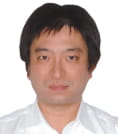
Senior Principal Researcher
Foundational Quantum Technology Research Directorate
National Institutes for Quantum Science and Technology
Outline
In this study, extremely ultrafast dynamics of water upon photoexcitation is explored by a laser based attosecond soft X ray pulse source. A home built high-power ultrashort infrared pulse source around a wavelength of 2000 nm produces attosecond soft X ray pulses via a high harmonic generation process in noble gases . Using the attosecond soft X ray source, time resolved measurements of soft X ray absorption fine structure around the oxygen K edge at 540 eV are performed to reaveal the elementary relaxation process of photoexcited water.
Yuki Inada
Mid-Infrared Imaging Sensor with Ultra-High Sensitivity and Frame Rate for Novel Plasma Technology
Grant No.:JPMJPR2003
Researcher
Yuki Inada
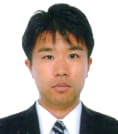
Associate Professor
Graduate School of Science and Engineering
Saitama University
Outline
In this project, a comprephensive plasma diagnostic system is developed for simultaneous, successive visualisation of the electron density and electric field with 100-times-higher sensitivity and frame rate over a spatiotemporally non-reproducible ultrafast discharge plasma. The huge amount of image data is fully utilized for the construction of a numerical simulation model and the identification of the generation mechanism of a rare plasma event, which contribute to the establishment of a novel plasma technology capable of producing massive chemically active species.
Yuuki Uesugi
Toward novel optical tecnology using nonlinear stimulated scattering of light by free electrons
Grant No.:JPMJPR2004
Researcher
Yuuki Uesugi
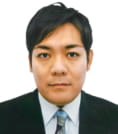
Assistant Professor
Institute of Multidisciplinary Research for Advanced Materials
Tohoku University
Outline
Scattering of light by free electrons occurs only with a small probability, which is determined by a physical constant called the Thomson cross section. However, it is known that the probability can be enhanced by a stimulating effect, bringing new applications to laser optics and electron optics. In this project, I aim to create novel optical technology using the stimulated scattering process, through the development of laser-based elements for electron microscopy and the investigation of nonlinear optical phenomena by free electrons.
Takashi Kato
Optical phased array using optical frequency comb
Grant No.:JPMJPR2005
Researcher
Takashi Kato

Associate Professor
Graduate School of Informatics and Engineering
The University of Electro-Communications
Outline
In this research, I aim to develop a fast and broadband optical phased array using an optical frequency comb and try to establish an arbitrary wavefront generation technique using a phase-controlled ultrashort pulse train. Although previous researches used conventional phase-control technique (e.g. EOM) with monochromatic CW laser in an optical integrated circuit, this study proposes a new phase-control technique by a cavity control of an optical frequency comb with broadband ultrashort pulses. I challenge the creation of a new optical technology in which space is directly controlled by optical frequency.
Natsuki Kanda
Control of material properties with vector field shaped intense THz-to-MIR pulses
Grant No.:JPMJPR2006
Researcher
Natsuki Kanda
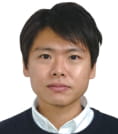
Researcher
Center for Advanced Photonics
RIKEN
Outline
In this research, the methods for generation of vector field shaped intense THz-to-MIR pulses will be established in order to realize ultrafast material control, for example Floquet-Weyl state of a Dirac semimetal. Technique for precise polarization measurements, vector field shaping, and amplification of field shaped pulses in this frequency region will be developed. This research will open a new route for ultrafast material control. In addition, each elementary techniques would be sophisticated and applied to various research fields.
Reika Kanya
Measurements of zeptosecond time delays by scattering of high energy electrons dressed by light
Grant No.:JPMJPR2007
Researcher
Reika Kanya
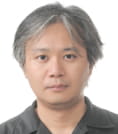
Professor
Faculty of Science
Tokyo Metropolitan University
Outline
Through collision processes between rare gas atoms and high energy electrons in ultrashort pulsed laser fields, energy and angular distributions of scattered electrons will be recorded by an angle resolved time of flight electron analyzer. Through anayses of intensity distributions of scattered electrons, determination of zeptosecond time delays of scattered electrons induced by interaction potential between target atons and incident electrons will be conducted for exploring zeptosecond science.
Keiichiro Shiraga
Mysterious world of intracellular water investigated with attenuated total reflection terahertz spectroscopy
Grant No.:JPMJPR2008
Researcher
Keiichiro Shiraga
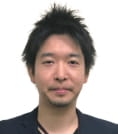
Assistant Professor
Graduate School of Agriculture
Kyoto University
Outline
Water, the ”matrix of life”, is widely believed to serve unique and essential functions in a living system, but surprisingly, there are still many unexplored avenues in the study of molecular mechanisms in intracellular water. This research aims to clarify the relationship between physical properties of intracellular water and cell activities by constructing the innovative spectroscopy system that allows simultaneous measurement over the terahertz and mid-infrared regions with high accuracy and long-term stability.
Ryosuke Senga
Ultra-high spatial resolution isotope detection using electron beam infrared spectroscopy
Grant No.:JPMJPR2009
Researcher
Ryosuke Senga

Seniour Researcher
Nanomaterials Research Institute
Advanced Industrial Science and Technology
Outline
This study explores basic research on infrared spectroscopy using an electron beam and develops technologies for highly sensitive isotope detections. As a result, the spatial resolution of isotope detection, which has been mainly used in macroscale applications, can be improved to sub-nanometers. This will realize isotope science on a completely different scale such as single-molecule and -atom tracking of biological and chemical reactions.
Ryusuke Hisatomi
Optospinmechanics using surface acoustic waves
Grant No.:JPMJPR200A
Researcher
Ryusuke Hisatomi

Assistant Professor
Institute for Chemical Research
Kyoto university
Outline
There is an angular momentum which has yet to be distinctly observed. That is the angular momentum of phonons. This research focuses on surface acoustic waves and aims to demonstrate the existence of the angular momentum of phonons using light. Based on this fundamental purpose, I am trying to build the physics of interconversion of the angular momentum between photons (optics), electron spins, and phonons (mechanics).
Yuta Michimura
New dark matter search with high precision polarization measurements
Grant No.:JPMJPR200B
Researcher
Yuta Michimura

Research Scientist
The Division of Physics, Mathematics and Astronomy
California Institute of Technology
Outline
Various astrophysical observations have revealed that about 80% of all the matter in our Universe is dark matter. Despite strong observational evidence for the existence, its identity and properties remain a mystery for many years. Among a variety of dark matter candidates, axion is recently receiving considerable attention. Axion is a hypothetical elementary particle which slightly interacts with light and modulates polarization states of light. This project aims to search for axion dark matter with unpreceded sensitivity, by precisely measuring the polarization states of light using laser interferometers.













